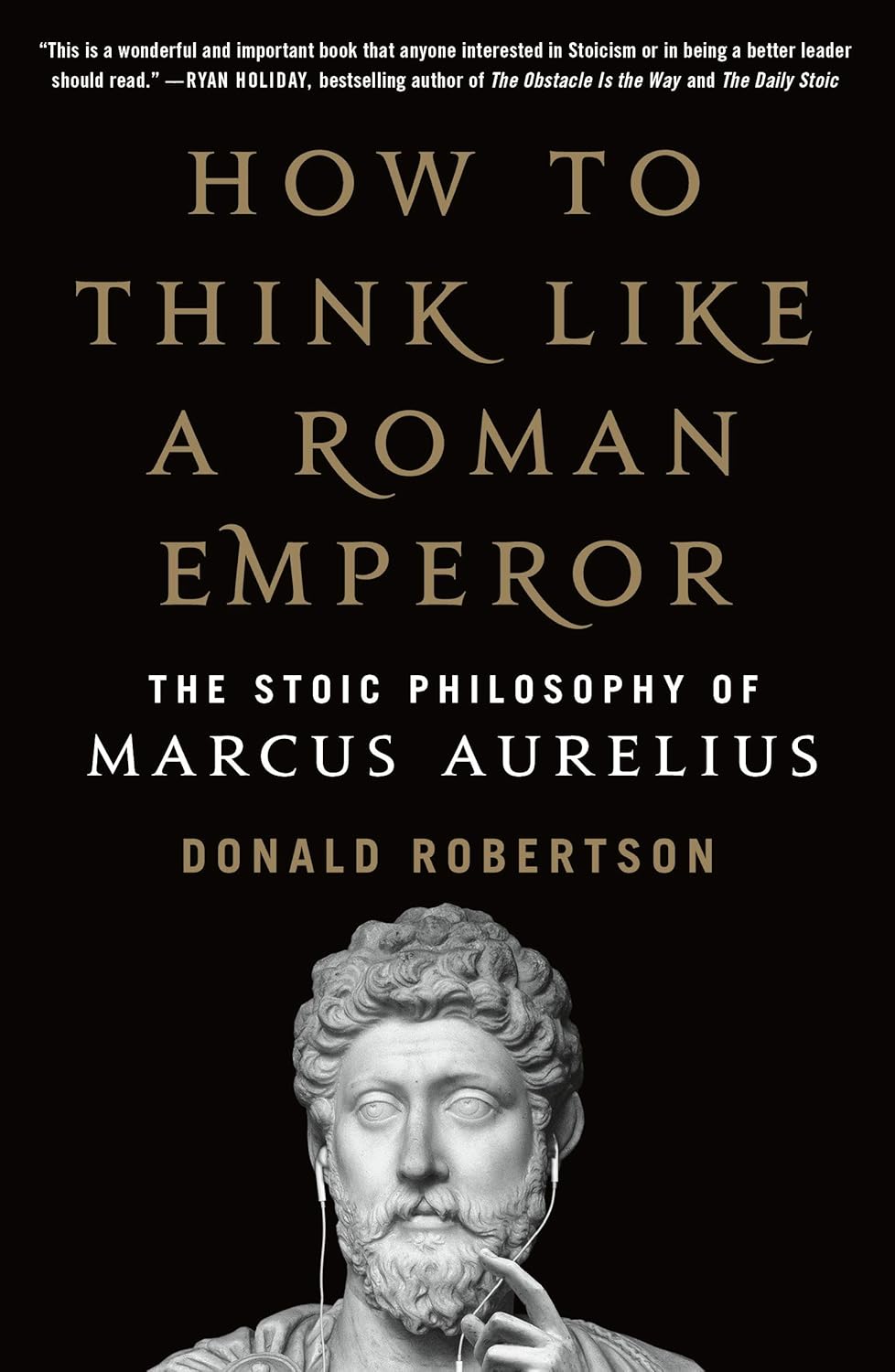
How to Think Like a Roman Emperor: The Stoic Philosophy of Marcus Aurelius
FREE Shipping
How to Think Like a Roman Emperor: The Stoic Philosophy of Marcus Aurelius
- Brand: Unbranded

Description
A final example would be the calm acceptance of the fact that usually all one can control is his or her best efforts; one cannot entirely control the actual outcome of most things in life. The author describes this attitude as the "stoic reserve clause," which is often phrased as a caveat such as "fate permitting" or "God willing." The Stoics defined fear as the expectation that something bad is going to happen. Inoculating ourselves against stress and anxiety through the Stoic premeditation of adversity is one of the most useful techniques for building general emotional resilience. So what can Marcus teach us? Since Marcus modeled his behavior according to a hypothetical Stoic ideal, we can all use Marcus’s own character traits as a model for our own character development. In that respect, what follows is a brief summary of the character traits and habits of mind of Marcus Aurelius that we would all benefit from emulating. Such psychological obstacles, it is important to say, are created by our minds. Stoicism, as a rational analysis, has many techniques that can put things in a different and more modest perspective. I mean that things in life are much less important than we think. Besides, we can only control ourselves or, more precisely, we can only control our minds. The final chapter of this book is written in a different style, resembling a guided meditation. It’s closely based on ideas presented in The Meditations of Marcus Aurelius, although I’ve paraphrased his words to turn them into a longer account that’s deliberately intended to evoke mental imagery and a more elaborate contemplative experience. I’ve also included a few sayings and ideas derived from other Stoic authors. I gave it the form of an internal monologue or fantasy because I felt that was a good way to present the Stoic contemplation of death and the “view from above.”
The following day, Marcus awakens early, feeling extremely frail and weary. His fever is worse. Realizing that these are his last hours, he summons Commodus. The series of wars against hostile Germanic and Sarmatian tribes that Marcus has been fighting for over a decade now is already in its final stages. He urges his son to bring them to a satisfactory conclusion by assuming personal command of the army, pursuing the remaining enemy tribes until they surrender, and overseeing the complex peace negotiations currently underway. Marcus warns Commodus that if he doesn’t remain at the front, the Senate may view it as a betrayal after so much has been invested in the long wars and so many lives have been lost in battle. It's necessary to learn a great many things about another person before we can deliver a firm opinion concerning their personality and motives. While having a mentor is important, most of us do not personally know a Stoic master who is available 24/7 to critique our attitudes and behavior. But there’s another option, one that Marcus used himself after his most valued personal mentor, Junius Rusticus, passed away. Marcus would imagine that his mentor, or a group of mentors he respected, were constantly watching over his actions, and that he would need to explain his actions to a tribunal of philosophers at the end of each day. The main antidote to anger for Marcus is the Stoic virtue of kindness, which along with fairness makes up the cardinal social virtue of justice. Kindness is essentially goodwill toward others and the desire to help them. How to think like a Roman emperor breaks downs Aurelius life in different chapters each chapter reflects and pinpoints how Marcus was challenged emotionally and physically during his reign as emperor. It brings in the stoic teachings and shows the reader how Marcus saw and used these methods to overcome some very hard moments in his life but also giving the reader the ability to understand and use it as well in their day to day struggles.
As the hubbub outside grows louder, the nervous guards ask their tribune, “What did he say?” The officer looks like he’s about to speak but then pauses for a moment. He furrows his brow in puzzlement as he relays the dead emperor’s message: “Go to the rising sun,” he said, “for I am already setting.”5
This book breaks down into a fascinating combination of the life of Marcus Aurelius and in depth advice from a therapist about how to cooperate Stoicism into modern day life. You won’t learn how to suppress emotions, but how to accept them with grace and react to them with wisdom. I for some reason thought Stoicism was about shoving emotions down and ridiculing things like therapy. But it turns out that modern cognitive behavioral therapy is based on Stoic philosophy.
Upon graduating, I began studying and training in psychotherapy because learning to help others seemed to offer me a route to self-improvement that I could relate to my studies in philosophy. It was a time of transition for the therapy field: Freudian and Jungian psychoanalytic approaches were slowly giving way to cognitive-behavioral therapy (CBT), which has since become the dominant form of evidence-based practice in psychotherapy. CBT was closer to the philosophical practice I was looking for because it encourages us to apply reason to our emotions. However, it’s something you typically do for a few months and then set aside. It certainly doesn’t aim to provide us with a whole way of life.
- Fruugo ID: 258392218-563234582
- EAN: 764486781913
-
Sold by: Fruugo
